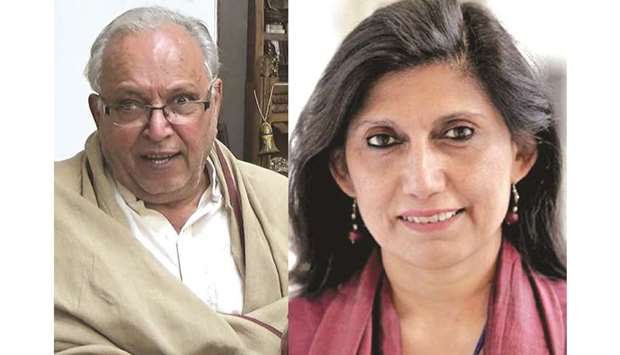Audio and video recordings belonging to Lok Virsa that were alleged to have been stolen and moved to the United States are still in place, it emerged yesterday.
Uxi Mufti, a former executive director at Lok Virsa who headed the institution for more than 30 years, had filed a complaint with Prime Minister Imran Khan alleging that the archives of Lok Virsa were robbed by former Lok Virsa executive director Dr Fouzia Saeed.
He had also sent a communication on similar lines to Minister of Heritage Shafqat Mehmood.
Saeed, who is presently heading the Pakistan National Council of Arts (PNCA), had served a legal notice on Mufti and filed a complaint against him with the cybercrime wing of the Federal Investigation Agency (FIA) for allegedly spreading false allegations about her.
But interviews with several relevant individuals, including incumbent Lok Virsa Executive Director Talha Ali Khan Kushyaha, reveal that most of them are confident that the audio and video materials are present in the archives and nothing has gone missing.
“This matter is an old one A couple of years before I had joined it is about digitised content of the original archives at Lok Virsa. I do know the ministry had conducted an inquiry into this matter and did not find any problem or any wrongdoing,” Kushvaha said.
Ali Rashid, the IT expert who had the designed search engine and had uploaded videos, audios and documents stored in the data feeder for the digitalisation project, also said there was nothing missing.
He said he was ready to go to Lok Virsa with Mufti to show to him that all the originals were there.
Simon Fatima, who was a coordinator of the project, refused to offer any comment when she was contacted.
In background interviews, many people said there were some complaints a couple of years ago regarding this issue by a former employee, leading to the initiation of an inquiry.
A formal and comprehensive inquiry was initiated by the Ministry of Information and the final report concluded in May 2019 that the complaints about the stolen archives were baseless and Lok Virsa could investigate who made the frivolous claims.
An official from Lok Virsa disclosed that as one of the archival room, with the server for the database, was locked and to be opened after the inquiry, in February 2020 all the stakeholders, representatives of the Ministry of Heritage, former and current directors general of Lok Virsa and others joined for the unlocking of the archives to make sure all the materials were present.
They all witnessed and signed off on a report stating that all the data was in the server and that no data was missing.
Mufti said he had been collecting precious folkloric materials for the archives for 40 years and built the archives himself, constituting thousands of hours of audio and video material.
He also started the initiative of digitising the archives with Norwegian aid but after his term ended in 2007 the process stopped.
Later, Dr Saeed as executive director began the process again in 2016 with support from the US embassy and the Smithsonian, a credible cultural institute in the US.
Mufti has claimed that Dr Saeed used the project fund in which an NGO and the Smithsonian were partners.
He said the NGO received all the funds and Lok Virsa received nothing, adding that Dr Saeed replaced regular staff with NGO staffers to get access to the archives and then conspired to take away the archival data, which was then sold to the US.
He also shared a copy of a letter written by him to the Smithsonian seeking help in the return of ‘stolen archives’ alleged to have been transferred to the US. He declined to share the response received from the institute.
When contacted, Dr Saeed said she led the organisation for three years and did not need such a complicated exercise to gain access to its archival materials. She said the complaint was initiated by incompetent and disgruntled staff after she left Lok Virsa.
She added that the purpose of digitising the archives and uploading them onto a searchable database was to create access for people to use these archival materials.
She explained that the archives that are not accessible are of little use, and the search function and digital material was to give access to the public, scholars and students.
She added that Mufti’s insistence on going into detail about the US-funded project only served to create confusion. She said all the work was done by Pakistanis hired by Lok Virsa while guidance and equipment came from the American grant.
She explained that it was her choice not to take funds, as the EAD process of approval is long and also because there were many scandals related to the Norwegian grant which was terminated because of misuse and she did not want to take any funding whatsoever.
The main issue, she said, was that the materials were very much there in the archives and “if I had to make a copy for myself it is not difficult to transfer it through the Internet or get it on the iCloud in a few minutes.”
“The whole story of first transferring the regular staff out, then putting in contractual staff and then clearing the arena to steal the archives in scores of hard drives is absurd,” she said.

CLASH: Uxi Mufti, former executive director Lok Virsa (left), and Dr Fouzia Saeed, head of Pakistan National Council of Arts.
